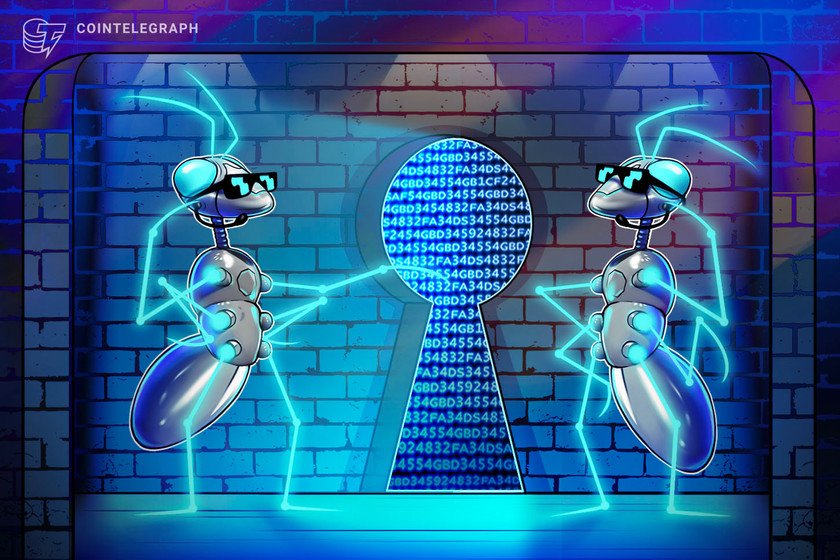In the 19th century, the barons of American industries rose to prominence by leveraging their succor on tangible sources esteem oil and steel. Nowadays, company titans perceive to realize even elevated heights of wealth by gathering particular person records. Nonetheless now, esteem then, the advantages of accumulating such sources come paired with a most critical industry risk: spillage.
Cherish oil spills, records leaks — no topic whether they occur accidentally or as a results of hacker interference — could cause companies and patrons most critical monetary, correct and political hurt. Preserve in tips the fallout at Fb earlier this year. In April, the phone numbers, fleshy names, email addresses and places of 533 million users were shared to a hacking dialogue board, prompting an outcry from patrons and governments alike.
Fb is much from on my own in its safety woes. In 2020 on my own, there were 1,001 reported records breaches and greater than 155 million folks were adversely tormented by records exposures. These leaks are an costly and time-energetic squawk for companies. One 2020 anecdote from IBM found that the average payment of a breach topped $8.64 million and usually took 280 days to catch to the backside of, though those metrics fluctuate by commerce.
No topic the expense and PR woes, many companies would argue that the advantages records gives are rate the risk of multi-million buck exposure. Learn has demonstrated that abundant records empowers companies to create higher strategic selections, cut back costs, toughen operational processes and carry out a more in-depth thought of their customers — all of which facilitate elevated earnings.
Blockchain is the savior
Avoiding safety dangers by no longer the utilization of records simply isn’t an option. So, the ask is: How can companies create the quite so much of the aggressive succor records gives without putting themselves at undue risk of monetary, correct and PR catastrophe?
The acknowledge lies with privateness-preserving computation on the blockchain.
This resolution could seem counterintuitive initially. With out reference to all the pieces, blockchain transactions attain consensus in public and are designed to be transparent and publicly accessible — two traits that flee counter to companies’ records safety targets. It’s the blockchain paradox: Customers can both allotment records to enact current insights that succor society as a complete or isolate records into protected silos that safeguard particular person privateness.
In latest years, the emergence of privateness-preserving computation has introduced a Third option. With verifiable computation, findings would be audited publicly to expose correctness outside of the first blockchain community, thereby eradicating the exposure dangers posed by transparency. Furthermore, by integrating privateness-preserving computation as a layer-two resolution and outsourcing the work to external nodes, this safety measure would be applied without adding an undue burden or payment to a firm’s critical blockchain community.
In observe, integrating this safety measure contrivance that companies can possess their cake and devour it too. By incorporating blockchain into records management approach, companies can vastly decrease the risk of breach and its connected fallout.
While there would possibly perhaps be puny study to uphold the cost of layer-two, privateness-preserving computation namely, preliminary literature on blockchain-primarily primarily based safety indicates the abilities’s possible as a privateness measure. In 2020, one overview published in Sustainability found:
“The combination of [blockchain technology] in the commerce can create sure records confidentiality and integrity, and desires to be enforced to take care of records availability and privateness.”
Nonetheless, companies that undertake privateness-preserving computation and other blockchain-primarily primarily based safety measures don’t correct succor from improved safety, they furthermore possess a transformative different to bolster interoperability within industries which possess traditionally been hamstrung by the specter of records insecurity.
Healthcare as an instance
In the sphere, records-sharing between services, health networks and third-event researchers is most critical. Nonetheless, affected person privateness guidelines possess made records transmission complex. Particularly, many healthcare services were caught the utilization of old skool fax machines for years on yarn of their evolved electronic methods weren’t interoperable ample to soundly transmit affected person records.
These silos had a chilling catch on healthcare innovation. As a team of German scientists eminent in a 2019 paper in Nature Accomplice Journals of Digital Medication:
“Hidden in remoted databases, incompatible methods and proprietary instrument, [healthcare data is] complex to change, analyze and interpret. This slows down clinical development, as technologies that rely on this records — artificial intelligence, enormous records or mobile applications — can no longer be used to their fleshy possible.”
The possible the team refers to is most critical. In latest years, AI researchers possess used affected person records to form remarkably simply algorithms to reinforce clinical doctors real thru the diagnostic course of. Final year, as an instance, researchers trained a neural community to establish 26 of the most customary skin stipulations by connecting it with over 16,000 teledermatology situations. That algorithm change into finally found to be as simply as trained dermatologists. As one reviewer recapped the venture:
“Though this instrument isn’t any longer but accredited for scientific spend, deep-discovering out-primarily primarily based diagnostics and scientific resolution strengthen tools are gaining acceptance in quite so much of clinical specialties and are poised to change how we trip treatment.”
Poised, in principle, but in observe, records (in)safety stands as a roadblock to development. Constructing the teledermatology instrument required researchers to faucet real into a huge records trove. Nonetheless, sharing even minute gadgets of sexy affected person records is a privateness nightmare.
Preserve in tips the backlash that happened supreme year when Google partnered with Ascension, a most critical health center chain, to birth “Venture Nightingale” — a instrument designed to seek affected person records. The records precipitated an instantaneous and overwhelming backlash as critics lambasted the pair for sharing confidential affected person records. Google and Ascension pushed back on the criticism, arguing that their records-sharing adhered to federal records privateness tips. Nonetheless, as one Stanford University professor shared in an interview with the Wall Avenue Journal:
“Some attach in tips the federal law old skool, announcing the law’s protections haven’t saved tempo with the abilities sector’s increasing interrogate for affected person records.”
The level made here’s a nuanced one. The difficulty isn’t that companies aren’t adhering to privateness guidelines, it’s that the final public doesn’t possess faith in those safety measures. If health companies genuinely desire to maximize innovation by boldly leveraging records, they’ve to cease hedging to the letter of the law and birth addressing particular person fears head-on.
Believe if healthcare services had access to records safety measures that utilized layer-two verifiable computation to soundly allotment affected person records without putting the actual person — or their group, for that topic — in wretchedness. The safety and assurance the abilities supplied would entirely change the proverbial sport. It would empower innovation, prevent malicious threats and decrease the risk of records spillage.
Takeaways
The error made too typically by company leaders is to win that the advantages blockchain gives are puny to finance. Nonetheless, the protection blockchain gives also can suggested a mass-scale level of view shift on what’s that that that it’s possible you’ll perhaps presumably be also imagine in records-sharing. Privacy-preserving computation enables for the elimination of inconvenience. It empowers companies to imagine what in addition they would possibly be able to enact in the event that in addition they would possibly be able to leverage their records to the fullest extent without inconvenience of malignant interference.
This isn’t to direct that there wouldn’t be obstacles to enforcing blockchain-primarily primarily based safety measures as a norm — there indubitably would be. The important thing has already been talked about: Executives possess to have the payment blockchain holds outside of its stereotyped feature in finance. Then, developers would possess to create commerce-specific products in preserving with the secure computation of layer-two parts. Lastly, these products would ought to be broadly adopted to permit for records-sharing across companies.
Even one amongst those steps also can win years to total. Nonetheless prolonged timeline or no, in fact that this vision for an records-enabled, blockchain-secured future is a likelihood. Privacy-preserving computation is a true resolution to the records-spillage problems commerce leaders were struggling to resolve for years. We also can tag transformative innovation occur across all industries — if simplest company leaders win succor of the boost blockchain gives.


